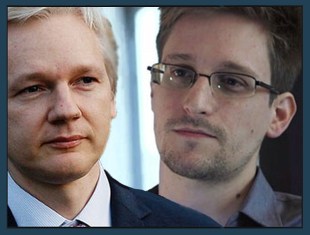 I like to think of myself as not prone to conspiracy theories. After President John F. Kennedy was assassinated on 22 November 1963, I was obsessed with the killing of the 35th President, especially after watching Lee Harvey Oswald being shot by Jack Ruby on live television two days later.
I like to think of myself as not prone to conspiracy theories. After President John F. Kennedy was assassinated on 22 November 1963, I was obsessed with the killing of the 35th President, especially after watching Lee Harvey Oswald being shot by Jack Ruby on live television two days later.
The Warren Commission Report was released in September 1964. It was designed to clarify what happened ten months earlier in Dallas, TX. The report was excerpted in the local Binghamton, NY, newspaper then, and I cut out the articles, taping them into a three-ring binder. It may be somewhere in my attic, even now.
For that 11-year-old, that was definitive. A single assassin, no second shooter. The end.
Except, of course, it wasn’t. The United States House of Representatives Select Committee on Assassinations (HSCA) was established in 1976 to investigate the assassinations of JFK and Martin Luther King, Jr. in 1963 and 1968, respectively. Concerning the former, the committee determined… that the probable conspiracy did not involve the governments of Cuba or the Soviet Union. The committee also stated that the conspiracy did not involve any organized crime group, anti-Castro group, nor the FBI, CIA, or Secret Service.” But it could have involved mob players, or others, acting without organizational authorization.
Lone gunman?
Oddly, the JFK Library seized on one aspect of the HSCA report. “The committee had found ‘a high probability that two gunmen fired’ at the president. This conclusion resulted from the last-minute ‘discovery’ of a Dallas police radio transmission tape that allegedly provided evidence that four or more shots were fired in Dealey Plaza. After the report appeared in print, acoustic experts analyzed the tape and proved conclusively that it was completely worthless—thus negating the finding in Point 1B.”True enough about the sound, but Point 1C suggests “another gunman,” though it cannot identify who.
Based on this article in New York magazine’s The Intelligencer, it’s become increasingly apparent that “the CIA lied about Oswald and Cuba.” Early on, it also explains how the Oliver Stone 1991 movie JFK, which naturally, I saw, was largely dismissed.
Sunlight
Documents are still being released, as recently as 2023. “The National Archives and Records Administration (NARA) is processing previously withheld… records to comply with President Biden’s Memorandum for the Heads of Executive Departments and Agencies on the Temporary Certification Regarding Disclosure of Information in Certain Records Related to the Assassination of President John F. Kennedy, requiring disclosure of releasable records by June 30, 2023. NARA worked in concert with agencies to jointly review the remaining redactions in 3,648 documents in compliance with the President’s directive. Between April and June 2023, NARA posted 2,672 documents containing newly released information.” This means roughly a thousand records still have not been revealed.
Paramount + released JFK: What The Doctors Saw on November 14. “Previously unreleased footage unveils an extraordinary reunion involving seven doctors who were present in the Parkland Hospital Emergency Room where [JFK] was rushed after being shot on November 22, 1963. Their testimonies divulge unsettling medical details surrounding the assassination, raising doubt about government investigations that found Lee Harvey Oswald acted alone.” It is compelling. Why would these physicians, in concert, lie about the events of six decades ago?
I don’t know THE answer to the story, but the questions have not gone away.



